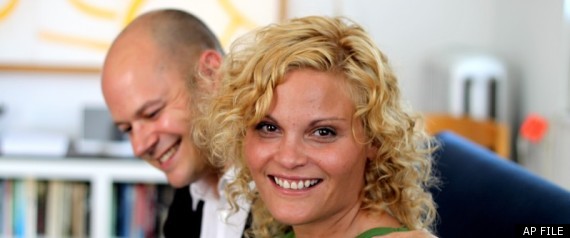You can leave this site quickly.
Learn more about Internet safety.
Joyful Heart in the News
Natasha's Justice Project, Stony Brook University To Study Rape Kit Backlog

WEST SAYVILLE, N.Y. — A recently formed organization that contends there is a nationwide backlog of untested rape kits told The Associated Press on Monday that it was teaming with a New York university to try to figure out how many are sitting on police department shelves as a first step in clearing the logjam.
Natasha's Justice Project, based on New York's Long Island, believes there could be as many as 180,000 untested rape kits in the U.S., said founder Natasha Alexenko. Her group, Stony Brook University researchers and a consulting firm named Strategic Planning will try to determine what the number really is, Alexenko told the AP.
A May report by the National Institute of Justice, the research arm of the U.S. Justice Department, said the exact number of unanalyzed sex assault kits nationally is not known, in part because of an "antiquated process" of reporting in many jurisdictions.
The institute's survey found that 43 percent of law enforcement agencies lack a computerized system for tracking forensic evidence. It also found that in 18 percent of unsolved sexual assault cases between 2002 and 2007, forensic evidence was collected but never submitted for analysis.
Rape kits can go untested for several reasons, said Sarah Tofte, director of advocacy and policy for the Joyful Heart Foundation, a rape victims advocacy group founded by actress Mariska Hargitay of "Law & Order: Special Victims Unit."
A prime factor is the cost of DNA analysis, which ranges from $800 to $1,500 per kit, she said. She also noted that police sometimes do not send the kits for testing when the victim quickly identifies the alleged assailant as someone she knows.
Alexenko publicly identified herself as a survivor of sexual assault after Manhattan prosecutors caught her attacker when they tested her rape kit nine years after the crime. She appeared in an HBO documentary earlier this year that focused on the work of the Manhattan district attorney's sex crimes unit.
"Anecdotal evidence suggests that the rape kit backlog is large, but reliable estimates on the extent of the problem are nonexistent," said Tia Palermo, assistant professor of preventive medicine at Stony Brook. "We aim to survey prosecutors, police departments and medical examiners across the nation to quantify the problem and identify best practices in an effort to better inform policies and procedures."
Alexenko was a 19-year-old college student from Ontario when she was raped and sodomized at gunpoint in the hallway of her Manhattan apartment building in 1993. She immediately reported the assault to police and went to a hospital, where authorities collected physical evidence, including DNA samples.
But Alexenko's rape kit sat on a shelf in an evidence room for nearly a decade. Only months before the 10-year statute of limitations was to expire, New York City prosecutors seeking to clear its backlog of rape kits had the evidence analyzed. Her attacker was later convicted and sent to prison.
"The revolution in DNA technology should strengthen the criminal justice response, not delay it," Alexenko said.




Your Voices